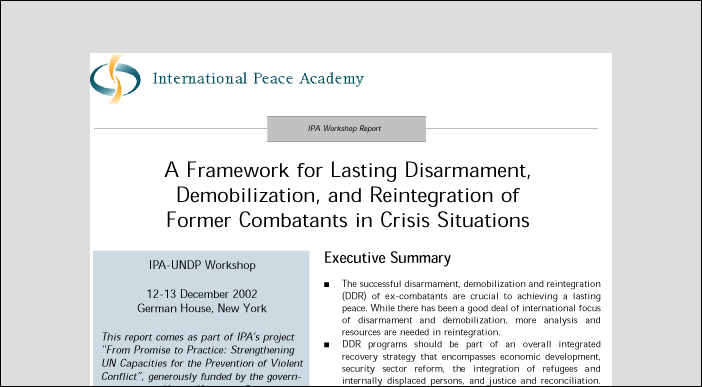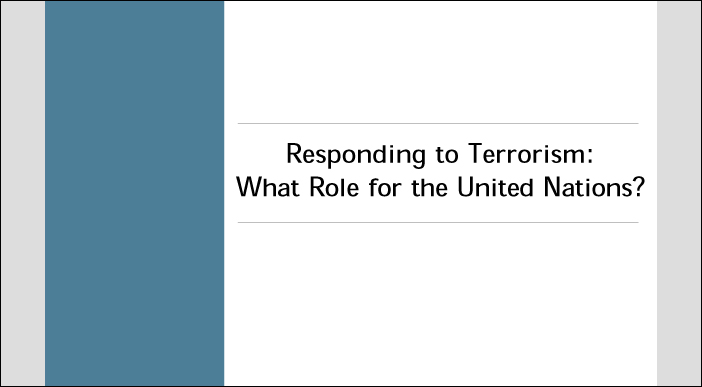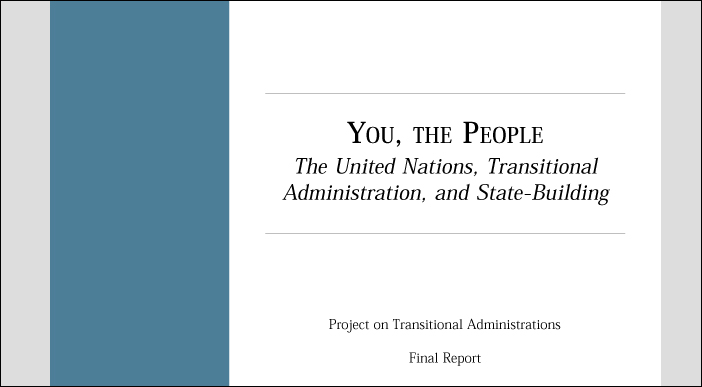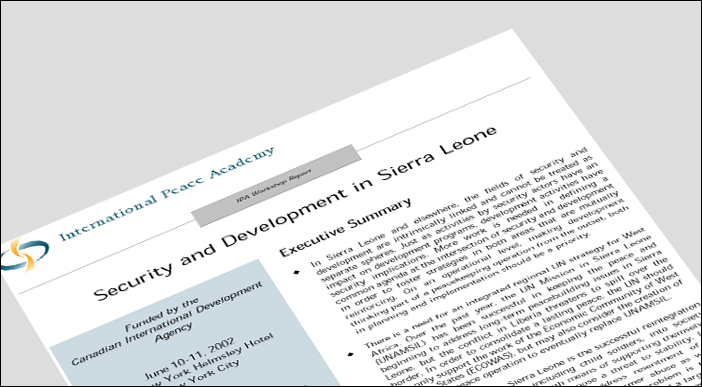In advance of the Security Council’s open debate on conflict-related sexual violence (CRSV), IPI, together with the Permanent Mission of Denmark to the UN, co-hosted a policy forum on April 17th on the topic of “Preventing and Responding to…
Top Stories
Latest
-

A report summarizing the discussions held at the December 12-13, 2002, workshop held at German House in cooperation with UNDP’s Bureau for Crisis Prevention and Recovery.Download
Read more -

This report summarizes the conclusions of the IPA [now IPI] project on “The United Nations and International Terrorism”.
Read more -

Report summarizing the discussions and recommendations at an IPA [now IPI] conference on UN Transitional Administrations (New York, October 18-19, 2002).Download
Read more -

A report from a workshop held in New York on June 10-11, 2002.Download
Read more







